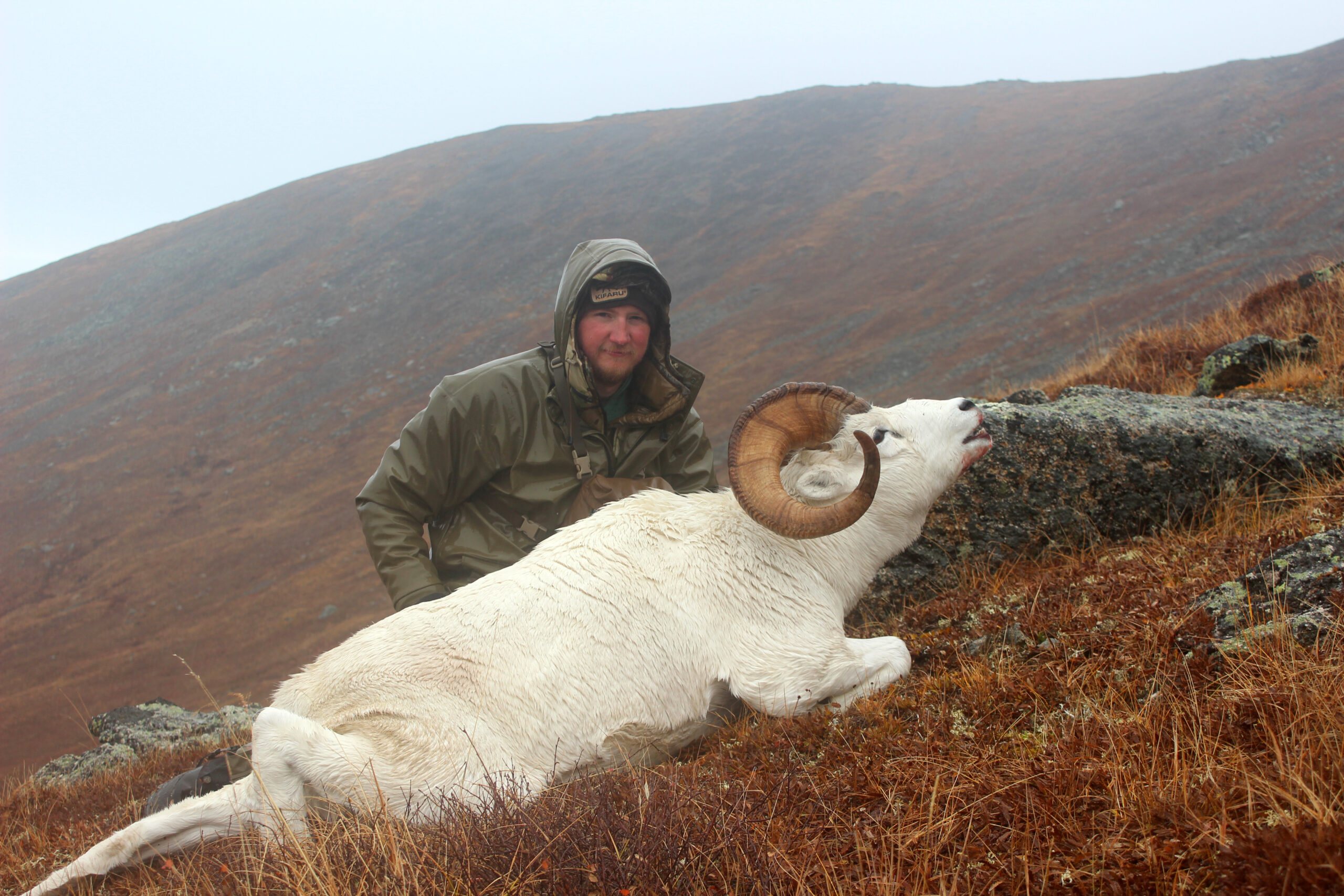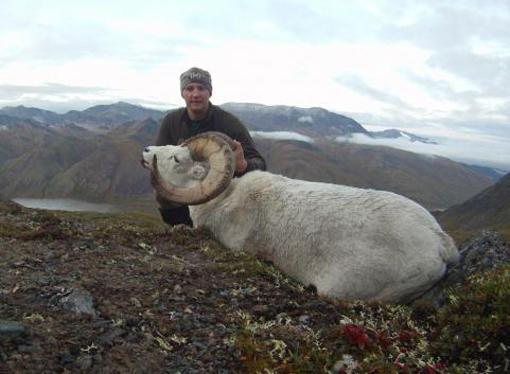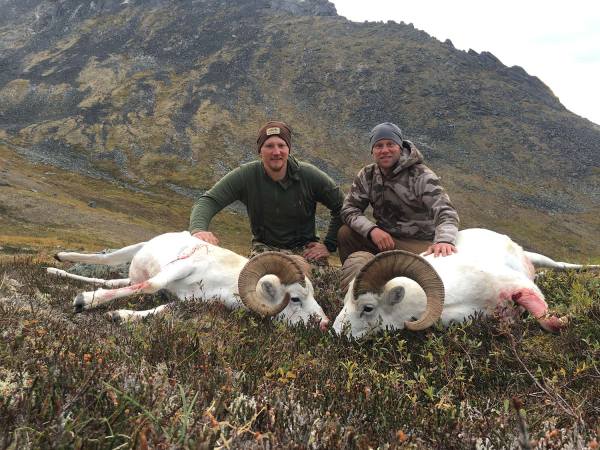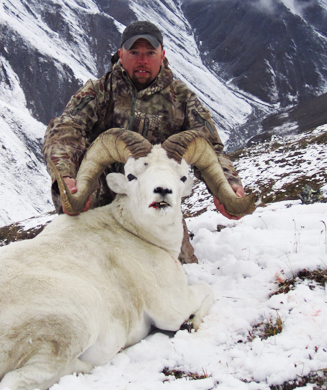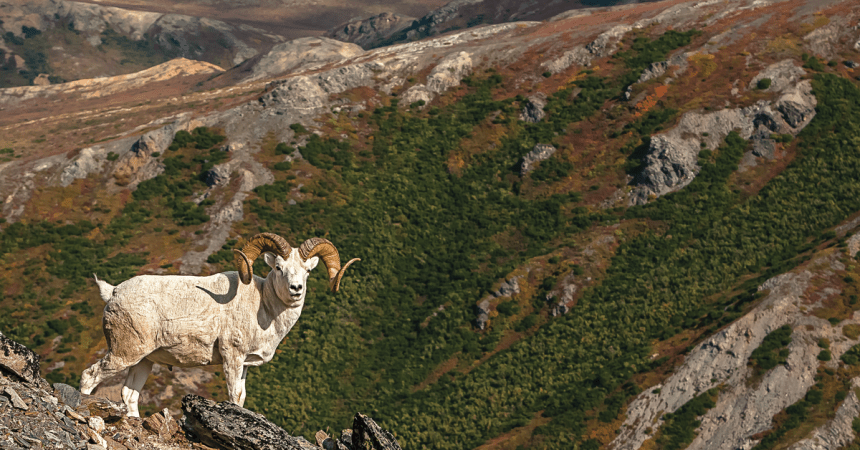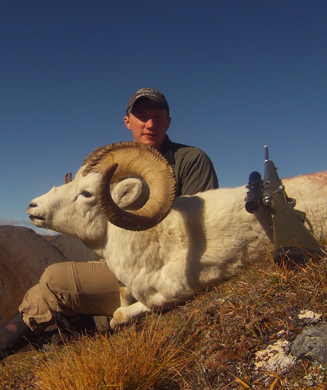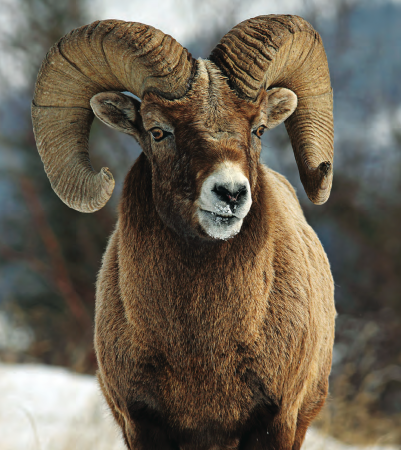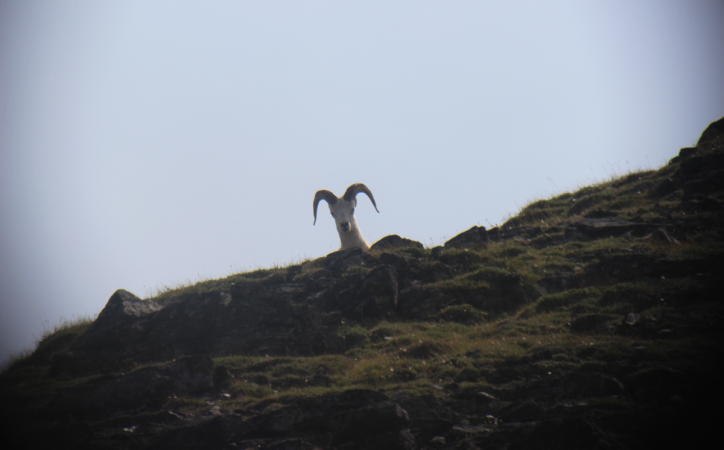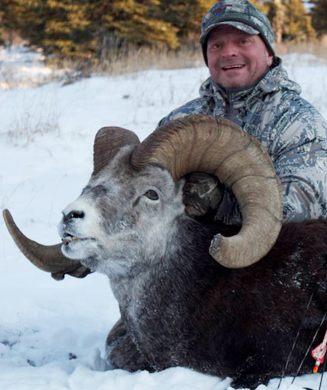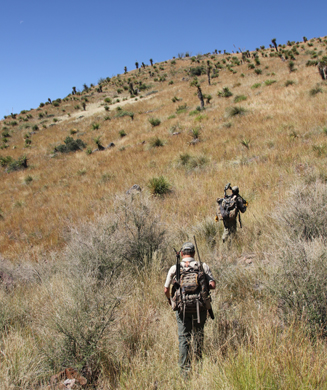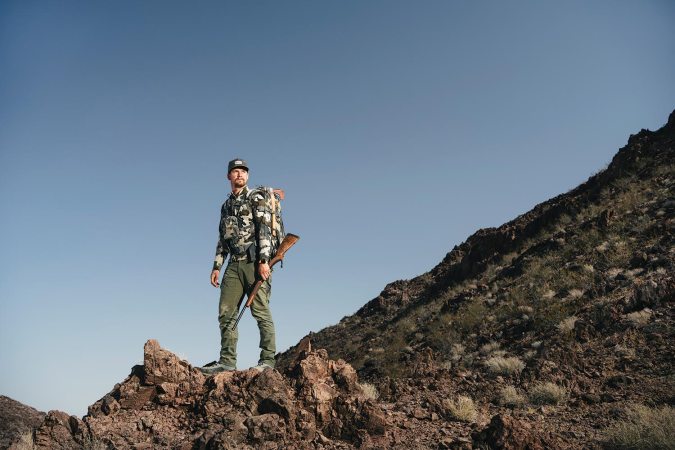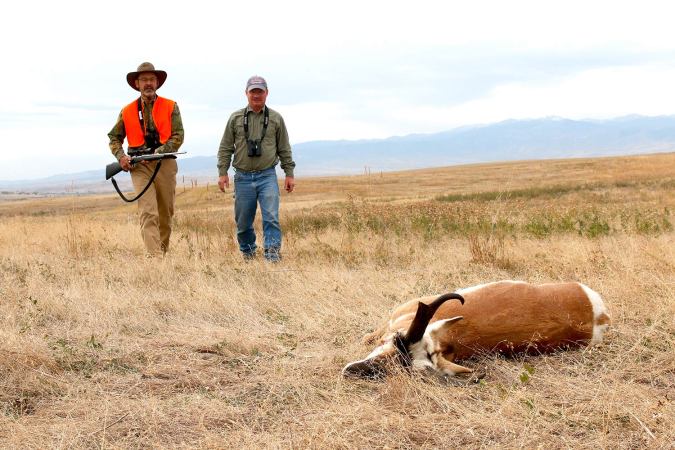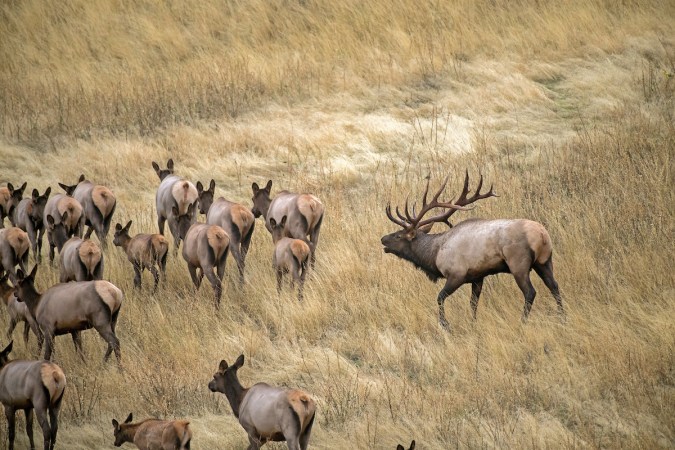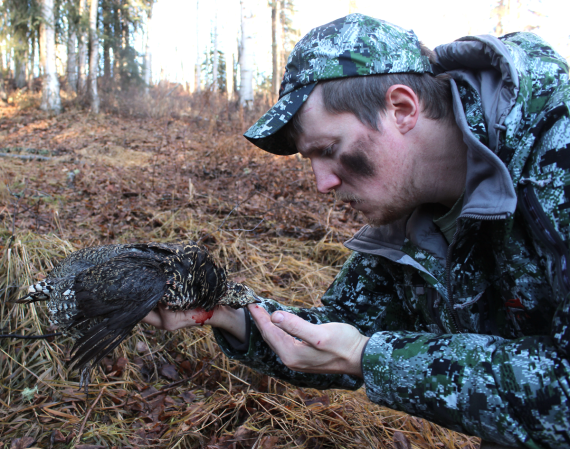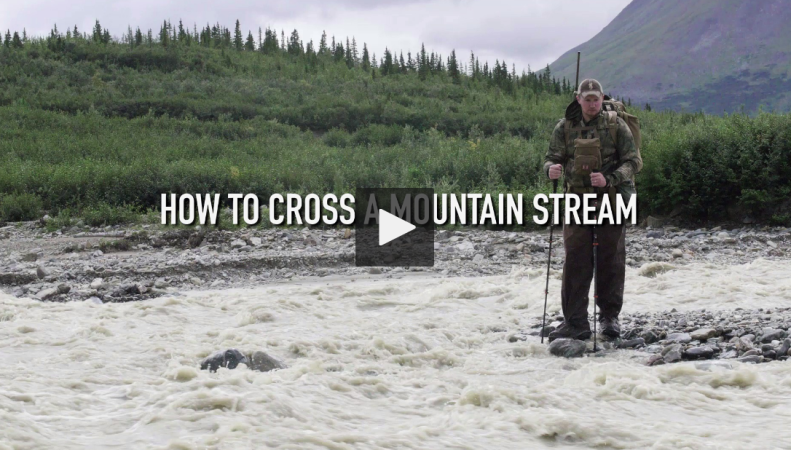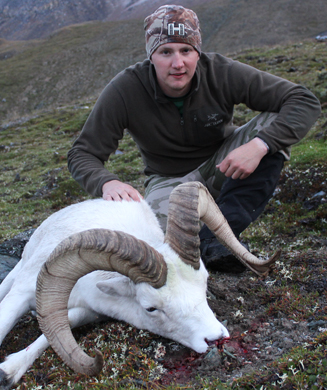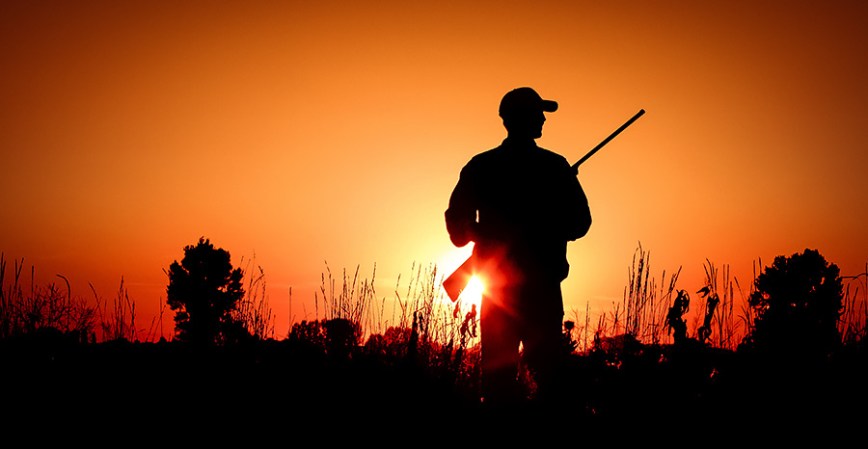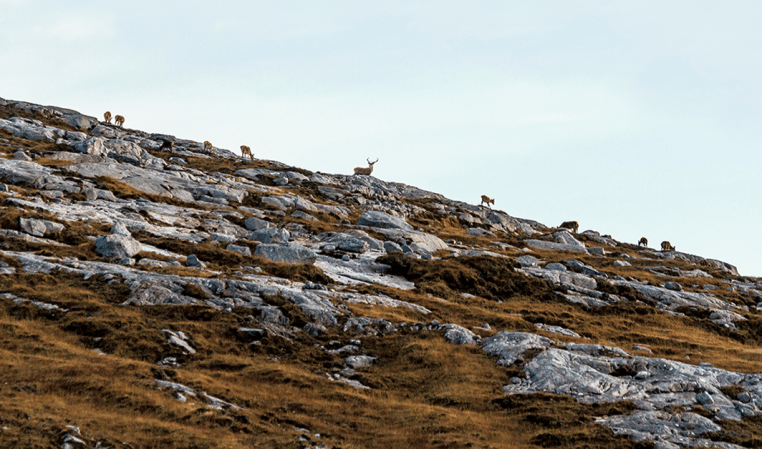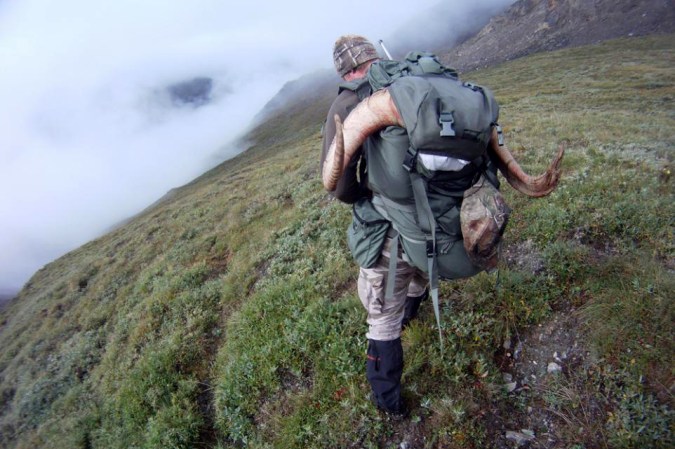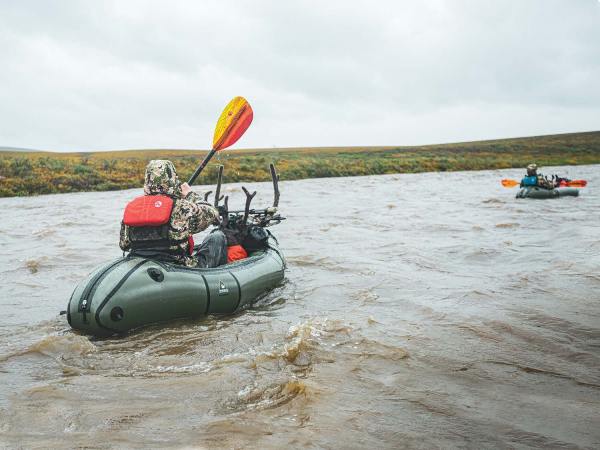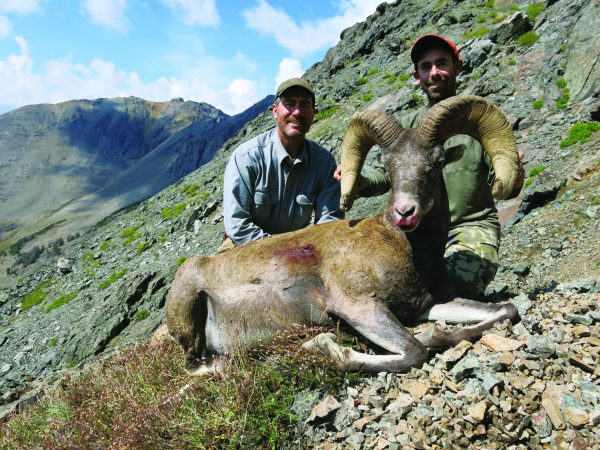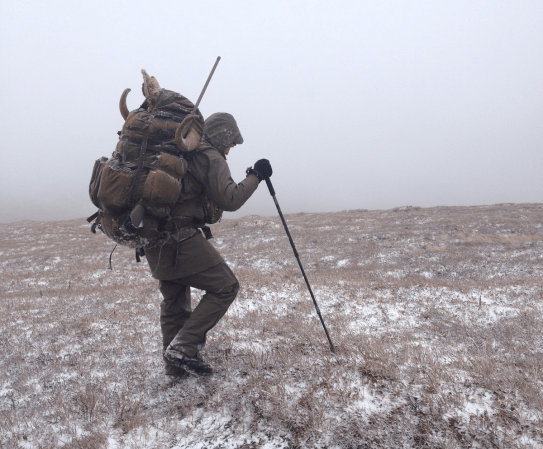My toes frequently remind me of just how hard sheep hunting can be on the body. I had the most brutal pack-out of my life back in 2006. I was young, green, and carrying all manner of heavy, crap gear—on top of an entire boned-out Dall ram. A 14-hour death march left the toes on both of my feet numb for a month, and they were still screaming at me nine years later as my buddy and I staggered the last few miles out to the road with his ram.
We’d under-estimated the remaining distance and were beyond the point of stopping. We couldn’t stop, not even to rest. If we did, we knew we wouldn’t be able to get back up. What little reprieve we got came while doubled over our trekking poles, standing in the trail. We were truly scraping the bottom of the barrel, and my feet were screaming. I dreaded taking my boots off to look at them.
It’s human nature to romanticize sheep hunting. Photos and stories promise incredible views, crisp mountain air, and the pursuit of one of the most majestic animals on the North American continent. Sheep hunting tales have drawn generations of hunters to pit themselves against the mountains, but the whole reality isn’t quite as peachy. Sheep hunting has a less-than-glamorous side, and if you’re only there for the novelty, it will be a rude awakening.
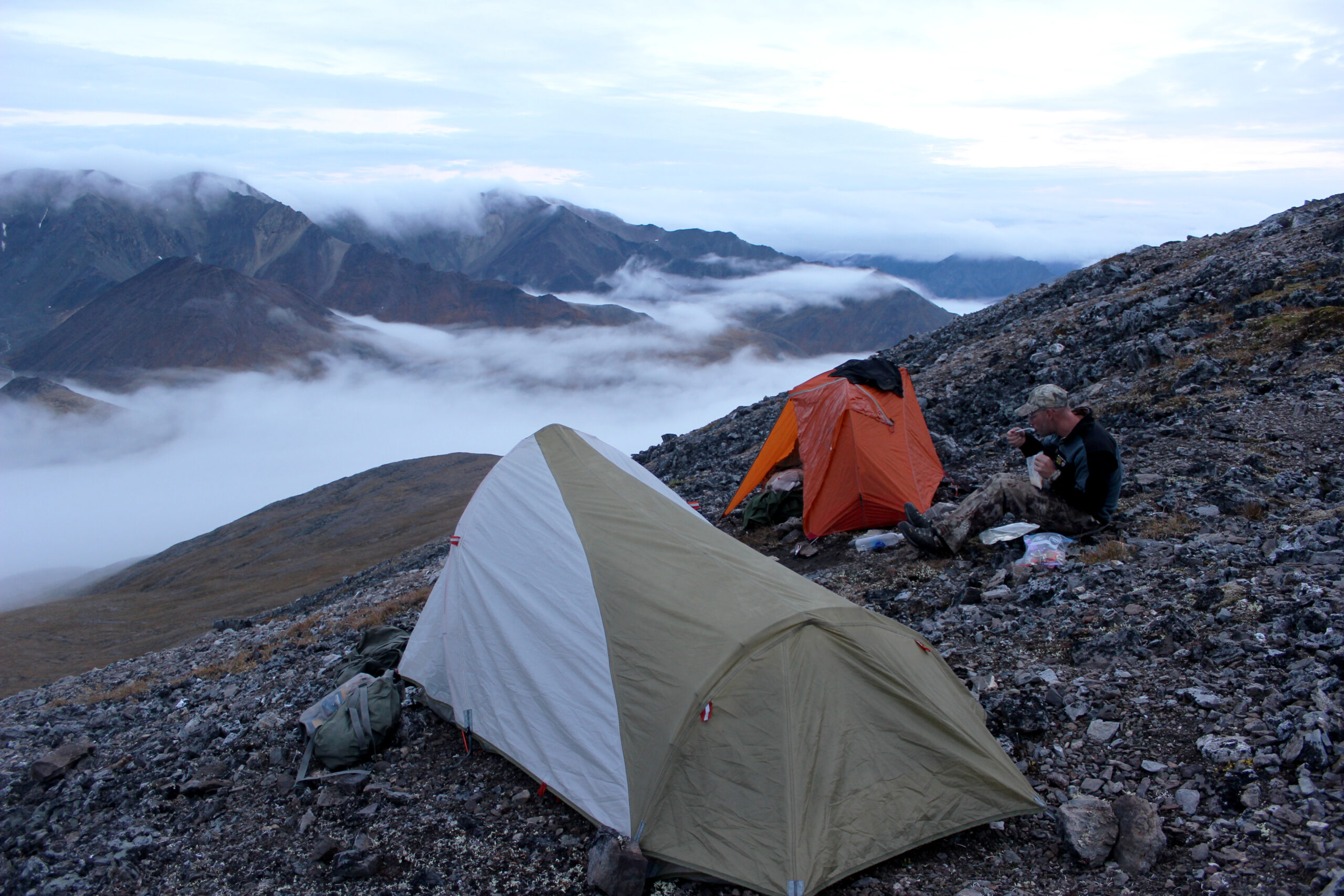
The Chafing
I envy the rare breed of sheep hunter who doesn’t experience this unique affliction. The slow, gradual wear and tear on the sensitive skin of your nether-regions results in a misery you wouldn’t wish on your worst enemy—it’s that bad. It may not be an issue in your everyday life and exercise, but the marathon that is a sheep hunt can cause strange things to happen.
Blisters? They’re child’s play. You’ve got a roll of Leukotape to extinguish those hot spots. Sore knees from all that hiking? Pop a couple Motrin and suck it up. If the humidity, temperature, and movements are just right, the chafe will rear its ugly head, and you’ll be trying to climb mountains with a gait that would be better suited to walking into a saloon after a long day driving cattle.
In all seriousness, a bad case of chafing in any number of locations can be crippling. It’s no joke. Fortunately, it’s preventable. It doesn’t always affect me, but it has, and I always carry a stick of body glide in my first aid kit. It’s good preventative maintenance, and you can quickly hit any areas that become a problem—just like you’d tape up hot spots on your feet.
The Thirst
Sure, on many sheep hunts you may be pulling your drinking water from crystal clear streams running atop a blue-iced glacier, but often you must take what you can get. Some sheep country won’t pose problems for keeping yourself well-hydrated, but that’s not always the case.
Sometimes water is scarce, and you need to plan every move you make around that reality. Many times, I’ve had to add almost 20 pounds of water to my pack (that already weighs close to 60 pounds) when leaving the security of a watering hole. Sheep country can be dry country, and I always carry enough Platypus water reservoirs to store two days worth of water.
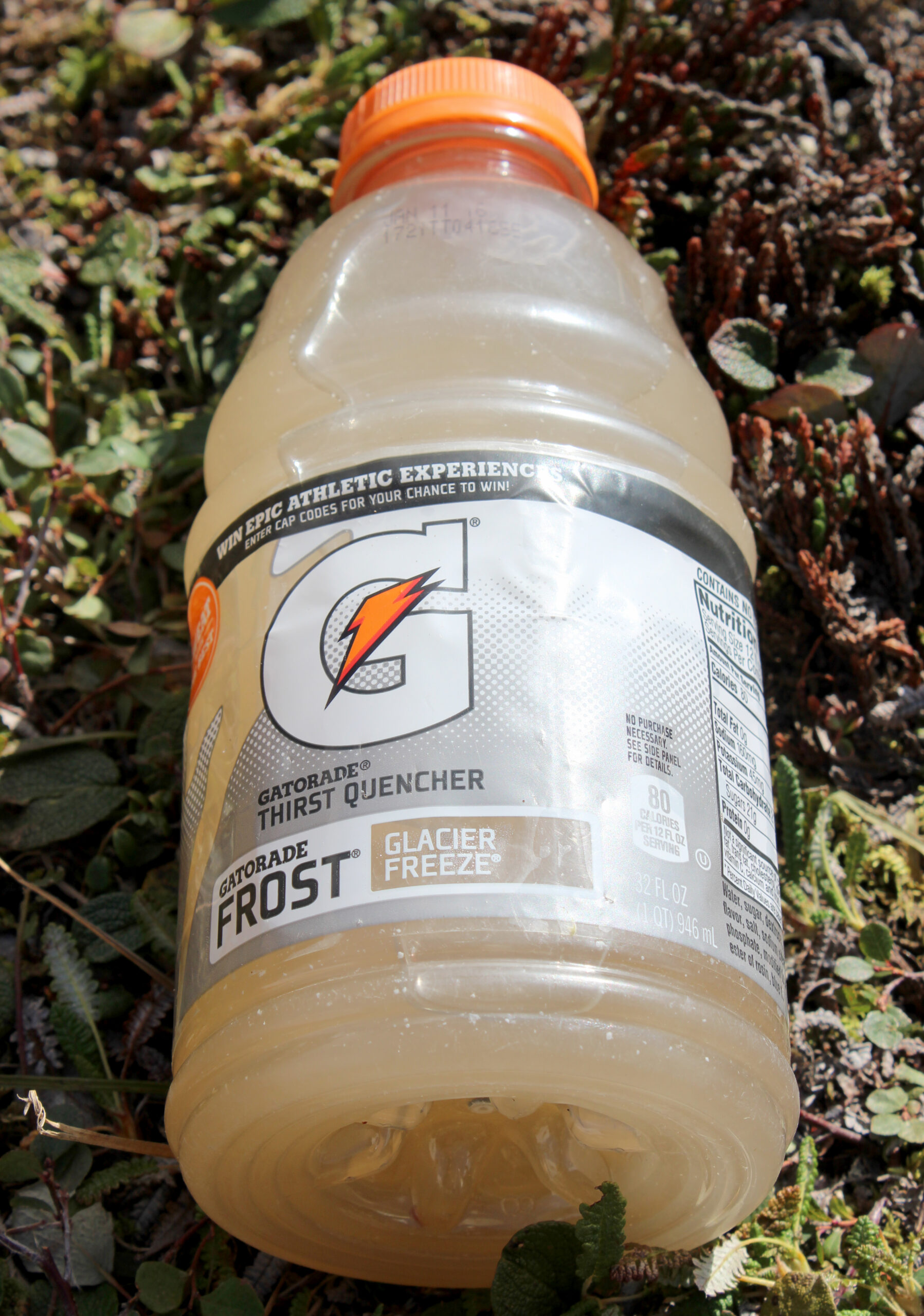
Being prepared to collect rainwater can save you from long, time-consuming hikes looking for springs or other water sources. Un-treated contractor bags and tarp shelters are great ways to collect rainwater. You don’t want to use bags that have any kind of fragrance or scent-control chemicals. If you take the time to properly set up these catches, one passing storm can provide you with enough water for another day or two. I’ve also used black contractor bags to melt snow.
You may have to drink from less-than-ideal water sources too, so make sure to treat it. I haven’t bothered with filters for years, I just use Aquamira treatment drops. You’ll eventually use your cup to scoop water out of potholes littered with sheep turds or pockets worn into the rock a spoonful at a time. You might have to dig holes in a seeping wet shale and let them fill up. You may even have to slurp down the milky glacial silt right along with the water, or suck water out of the moss growing at the base of a house-sized boulder.
The Damp
Unless you’re lucky, you will be soaked at some point during your sheep hunt. It will likely be a combination of an unrelenting downpour, wind, humidity, and your own sweat. For whatever reason, it seems like killing a ram is a sure way to open the floodgates, and I’ve had to pack more than a few rams back to camp in the rain. Eventually you’ll find yourself so wet that you’re wringing water out of your underwear (assuming the chafing hasn’t already worn them to pieces).
In August 2020, my buddy Frank and I knocked two rams down on opening day. By the time we started cutting up his ram, it was pouring. It rained so hard that the water was running off my sleeves and pooling against the hide faster than I could skin it. We crawled into the tent at 2 a.m. like a couple of sopping wet Newfoundland dogs.
The idea that your rain gear will keep you completely dry on a wet sheep hunt is a fairy tale. No matter the rain gear you use, if you are out hiking in sopping wet weather, you will sweat and get wet. It sucks and there’s no way around it. Non-breathable rain gear is sweatier to hike in, but it will keep the cold rain on the outside—something that’s critical when you stop moving and add warming layers. Breathable rain gear is great until it gets saturated, then it’s useless.
Synthetics are the name of the game when it comes to staying safe and warm when you’re wet. Good base, mid, and outside layers will keep you warmer when they’re wet. If you get a reprieve from the introduction of new moisture, your body heat will drive moisture out of your clothes. They’ll dry more quickly than non-synthetics. Often, I’ve stayed reasonably warm only because I had a synthetic sleeping bag or synthetic puffy layers—despite being soaked to the bone.
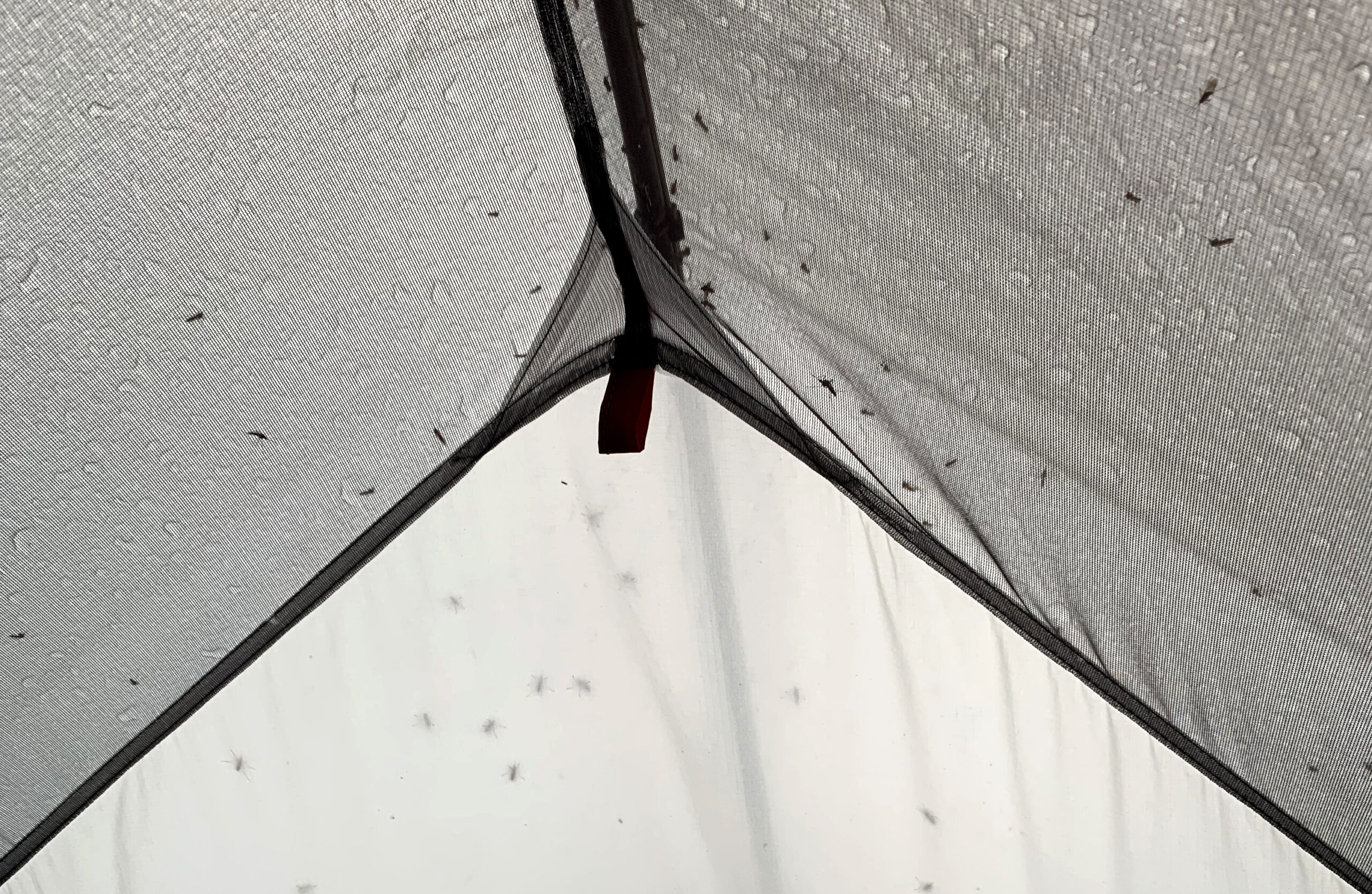
The Smell
If you think you’re stinky when you missed your morning shower, then boy are you in for it. This is especially true if you’re sharing a tiny mountain tent with a buddy. It’ll make the aroma of whatever body odor you’ve experienced seem tame. It’s the kind of stink that you can taste. Worst of all is how disgusting the stink and dried sweat makes you feel.
By day 10 of your sheep hunt, you’ll be able to stand up your pants on their own. Thankfully, you’ll only catch yourself in whiffs as you climb into the tent or change into your last pair of socks. I’m convinced that the brain has a self-protect mode that blocks out most of my sour, olfactory-assaulting essence. You won’t even know how bad you stink. Just make sure you play the wind right when you’re stalking a ram.
If you’re lucky enough to get a ram, it’s my unfortunate observation that after butchering it and packing it off the mountain, your farts will even smell like sheep—and they smell exactly like barnyard sheep.
When you can, use wet wipes are handy for a quick spit bath. If you have the time and favorable weather to wash up in a creek, do it. Otherwise, you’re just stuck with being a stinky mess till you get back out of the field.
The Woes Are Worth It
If you think those are the only less-than-appealing aspects of a sheep hunt, they aren’t. There are the frozen morning boots and ice-cold pack straps that are still wet from the day before. The leg cramps, aching back and knees, and endless false summits. You won’t know the meaning of “expedient” until you’ve had to squat by a rock and crap in a sideways driving rain storm while trying to keep your precious toilet paper dry.
Many of sheep hunting’s hardships come and go, but not all. You’ll likely be crippled up for a few days upon your return. On every hike, my toes burn from the damage I did to them over 15 years ago. The upside to all this is that the experience of finally getting the ram you’re after is powerful enough to make you forget it all. By the time I get home, the ache to go back is more powerful than the one in my feet.

